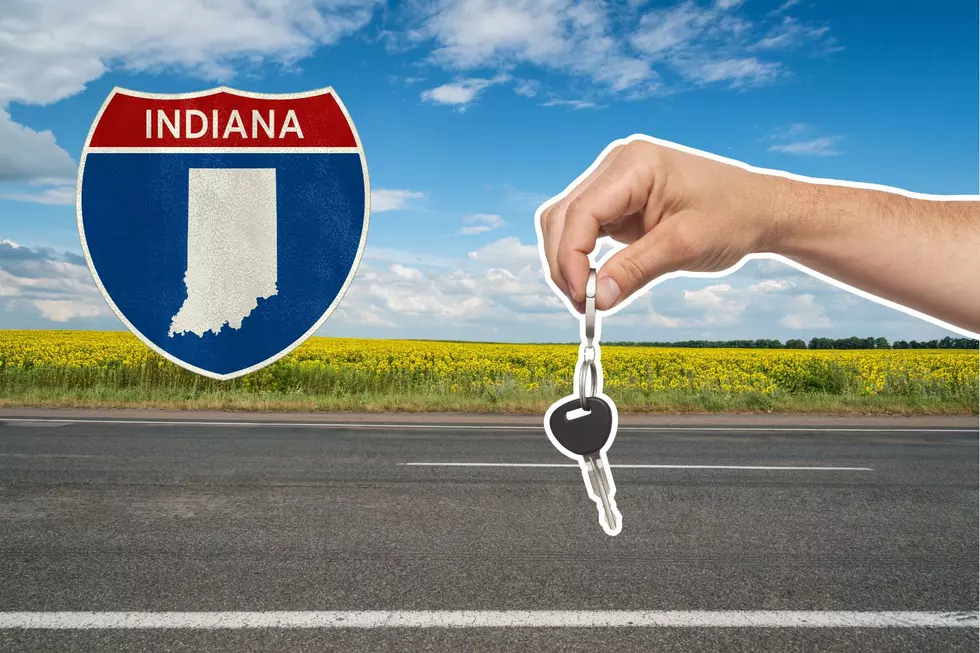
Scammers E-Mail Fake Speeding Ticket to a Blind Indiana Man
You would think that with all the time and effort scammers put into creating a scam they would use some of that time on researching the people they are targeting to make sure there's a chance they may actually take the bait. But apparently, they're either A) too busy creating scams, B) too lazy to do the research or C) too stupid to think that part through (I'm going with option 'C'. Final answer).
Tom Bozikis of Evansville is legally blind and therefore unable to drive, so I can only imagine the chuckle he got when he recently received the e-mail below claiming he had been busted for speeding and therefore had a fine that needed to be paid.
While some scammers do a pretty convincing job of crafting an e-mail that looks legit (I know I've received a couple where I wasn't sure and asked our IT guy to take a look), whoever is behind this one isn't one of them as it's relatively easy to see (no offense, Tom) this isn't real.

The biggest red flag that jumps out to me right from the start is there is no specific location for where this alleged violation took place. All it says is that Tom was caught going somewhere between 15-20 miles over the speed limit, then provides a link to the "EasyPay Center" where he can pay his fine, the amount of which isn't listed anywhere on the e-mail (red flag #2).
The one thing I will give them the tiniest amount of credit for is the small print at the bottom that provides a link where Tom could dispute the citation if he believes he didn't do anything wrong. Of course, that link likely goes to the same site the EasyPay link goes to which would have infected Tom's computer in some way and given the scammers access to all his personal info. For whatever reason, they were smart enough to include that, but not smart enough to realize they were e-mailing a blind man who can't drive ♂️.
One other thing these idiots would have found out if they would have taken a few minutes to do their research is that not only is Tom legally blind and unable to drive, he's also the Vice President of the Tri-State Better Business Bureau, the local chapter of the national agency dedicated to protecting consumers from shady business practices and scams like this.
I hope for their next trick they pull over a cop while pretending to be a cop.
How to Protect Yourself
According to the Better Business Bureau, if you receive this e-mail or one that looks similar, look it over carefully. If you're unsure of its legitimacy, they encourage you to look into the sender by hovering over the email address. Some will change an 'o' to a zero, or make another subtle change to the name of an established company or government agency to appear legit. If a phone number is included, research it on the internet to find out if the source is reputable or not.
Most importantly, if you have any questions about the legitimacy of an e-mail that contains a link, DON'T CLICK THE LINK or download any attachments until you know for certain it's from a reputable source.
If you find out the e-mail is a phishing scam, most e-mail providers give you the opportunity of marking the e-mail as phishing somewhere in the options. This will delete the e-mail from your inbox and make your e-mail provider aware of the scam, so they can try and prevent other users from receiving them.
Be Like Tom
Finally, if you receive an e-mail you know for sure, or have discovered to be a scam through research, the Better Business Bureau suggests you let your friends and family know about it so they don't accidentally fall for it. I wouldn't recommend forwarding them the e-mail. Take a screengrab instead and text it to them, or simply call and tell them what you received.
To report a scam, visit the ScamTracker on the Better Business Bureau's website, or call Tri-State chapter at (812) 473-0202.
[Source: Tri-State Better Business Bureau Press Release]
LOOK: What are the odds that these 50 totally random events will happen to you?
Inside Amazon: A Detailed History of America's Biggest Online Retailer
More From WKDQ-FM









